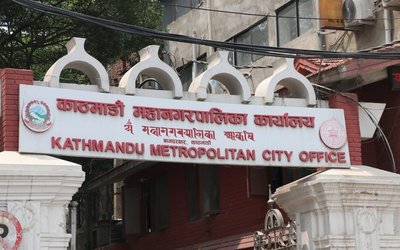Early this month, the famous Jantar Mantar at the heart of the Indian capital was abuzz with bustling movements of the Delhites, social activists and even celebrities. The 18th century monument which sees small protests and dharnas round the year, witnessed a rather large and an unprecedented sort of mass this time around. No points for guessing, the people had gathered there for the anti-corruption campaign of social activist Anna Hazare. Exceeding even his own expectations, Anna’s fast unto death until an anti-corruption bill was passed was to create uproar in the country in the coming days and establish this feeble looking septuagenarian retired soldier as a cult personality.
But as the Gandhian’s movement picked up momentum throughout the country, and hundreds of thousands of Indians flocked to the streets to lend their support for Hazare and demand for drafting a Jan Lokpal bill, it started to raise as much eyebrows as it had raised hopes earlier. Questions regarding the campaign’s legitimacy and claims of it being a mass movement started to pop up. Commentators also wondered if the movement and its demand would really help in eradicating the age old problem of corruption in one of the world’s worst-ranked countries of the Transparency International. Add to that, controversial figures turning up in Jantar Mantar to lend support to Hazare and controversial remarks by the activist himself, forced people to look at the other side of the story.
Hazare’s method has been criticized for being anarchic, a sort of blackmail and has even been blamed for disregarding the parliamentary democracy. Wrote a columnist in The Economic Times, ‘The much-glorified Gandhian leader and his much-hyped anti-corruption movement seem to have no patience with democracy.’
True, in a democratic system one has the right to express his discontent, but forcing the government to meet the demand by blackmailing can never be legitimate. Just imagine what will happen if a big crowd, following in Hazare’s footsteps, sit for a hunger strike to press for particular bills of their liking to be passed by the parliament. In a parliamentary form of system, it is the job of representatives of people in the house to decide the bills – not the crowd or, for that matter, the mob. It cannot simply be done through coercion, as in Hazare’s case. No doubt, the Lokpal bill has been pending in the parliament for 40 years and the representatives the people sent to the august body failed in their duty possibly because many of them were not immune to the corruption virus. That however does not give license to the Hazares to hold the parliament and the elected government to ransom. If the parliament did get the good and honest people’s representatives, it is the fault of the electoral system. Ana Hazare should therefore have pressed for comprehensive electoral reforms to ensure that incorruptible politicians got elected to the parliament.
There was another flaw in the movement; the much touted ‘non-violence’ element. Yes, you might argue that the movement was peaceful with the participants holding candle vigils and rallies, but what about the psychological and mental violence the popularly-elected government has been put through? How ethical or moral is it to use such violence against others to fulfill one’s demands?
The claim of the whole movement being mass oriented is also debatable. If you watch carefully, you will notice that the gatherings primarily consisted of the urban middle class: university students, intellectuals, government officials and social activists. But very few voices flew in from villages to lend support to the movement. Uttar Pradesh Chief Minister Mayawati even slammed Hazare for not including a Dalit member in the drafting panel of the Jan Lokpal bill. Further, use of Hindu religious symbols, welcoming of RSS leader Ram Madhav and the yoga guru Swami Ramdev by Hazare himself, has been largely condemned, bringing into question whether the movement was being backed by right wing Hindu elements. The movement also failed to attract participation from minorities including the Muslims. Although some small organizations like Muslim Students Organizations did voice their support, there was a lack of a broader Muslim participation.
Hazare’s praise for Gujarat Chief Minister Narendra Modi, one of the alleged culprits of the 2002 Gujarat riots, and calling him the ‘ideal’ CM, was another blow to the whole movement. Although, the activist later clarified that he was praising Gujarat’s development and strongly denounced any communal animosity, the damage had been already done.
As the people remain euphoric over the ‘success’ of the campaign, the main question that needs answer now is: will the Jan Lokpal Bill help to eradicate or even control corruption? The answer in my opinion is a NO. Firstly, a politics free from corruption cannot exist in any form of system. The level of corruption might differ in different countries, but eradication of corruption from politics is hard to think of. The Jan Lokpal Bill as proposed by Hazard and the company is also a threat to democracy. They want to vest in it the authority of investigation, prosecution and judgement a la the notorious Shahi Aayog formed – and subsequently disbanded on the orders of the supreme court – by the ousted royal regime of king Gyanendra in Nepal. This simply can not be accepted in a functionary democracy with a mechanism for checks and balances. The Shahi Aayog, among others, did the royal regime in. The Hazare-proposed Jan Lokpal Bill could do the same to the Indian democracy.
- SWISS SUPPORT: Construction Of A Trekking Trail In Koshi
- Dec 19, 2024
- PM OLI'S VISIT TO CHINA: BRI Agreement
- Dec 16, 2024
- RASUWAGADHI AND SANJEN: Begin Generation
- Dec 03, 2024
- NEPAL, INDIA ELECTRICITY TRADE Nepal's Advantage
- Dec 02, 2024
- PM Oli'S VISIT TO CHINA: Nepal's Dilemma
- Dec 01, 2024
















